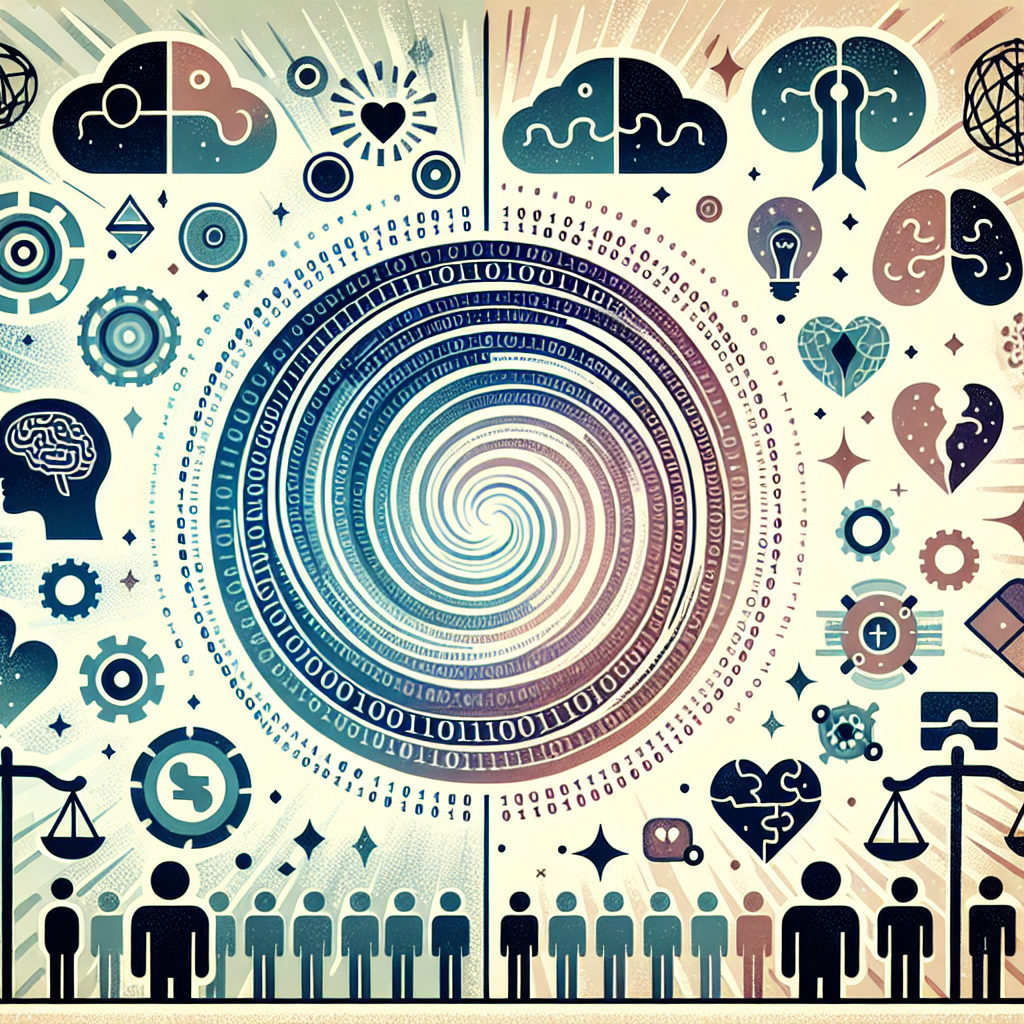Artificial intelligence (AI) has rapidly advanced in recent years, with applications ranging from autonomous vehicles to virtual assistants. While the benefits of AI are vast and continue to grow, there are also psychological risks associated with this technology that are often overlooked. The impact of AI on mental health is a growing concern, as it can lead to feelings of anxiety, isolation, and even depression. In this article, we will explore the psychological risks of AI and discuss how they can affect individuals’ mental well-being.
One of the primary psychological risks of AI is the fear of job loss. As AI technology becomes more advanced, many jobs that were once performed by humans are now being automated. This can lead to feelings of insecurity and anxiety among workers, as they worry about being replaced by machines. In a study conducted by the Pew Research Center, 72% of Americans expressed concern about the impact of AI on job security. This fear of job loss can have a significant impact on mental health, leading to stress, depression, and other negative emotions.
Another psychological risk of AI is the feeling of isolation. As AI technology becomes more prevalent in society, there is a concern that human interactions will be replaced by interactions with machines. This can lead to feelings of loneliness and disconnection, as individuals may struggle to form meaningful relationships with others. A study published in the Journal of Experimental Social Psychology found that individuals who interacted with a computerized therapist reported feeling more lonely and disconnected than those who interacted with a human therapist. This suggests that the lack of human connection in interactions with AI can have a negative impact on mental health.
Additionally, the use of AI in social media and online platforms can contribute to feelings of inadequacy and low self-esteem. Many social media platforms use AI algorithms to curate content for users, showing them posts that are likely to generate engagement. This can create a distorted view of reality, as individuals compare themselves to others who may appear to have perfect lives on social media. This can lead to feelings of inadequacy and low self-esteem, as individuals may feel like they are not living up to the standards set by others. A study published in the journal Computers in Human Behavior found that individuals who spent more time on social media reported higher levels of depression and anxiety.
Furthermore, the use of AI in healthcare can also have psychological risks. While AI has the potential to improve healthcare outcomes through more accurate diagnoses and personalized treatment plans, there are concerns about the privacy and security of personal health data. Individuals may feel anxious or stressed about their personal health information being stored and analyzed by AI systems, leading to concerns about data breaches or misuse of their information. Additionally, the reliance on AI in healthcare may lead to a sense of disempowerment among patients, as they may feel like their healthcare decisions are being made by machines rather than by human healthcare providers.
In order to address the psychological risks of AI, it is important for individuals to be aware of the potential impact that this technology can have on their mental health. It is also essential for policymakers and organizations to prioritize the ethical use of AI and ensure that individuals’ privacy and well-being are protected. By promoting transparency, accountability, and responsible use of AI, we can minimize the negative psychological effects of this technology and foster a more positive and healthy relationship with AI.
FAQs:
1. Can AI technology be used to improve mental health outcomes?
Yes, AI technology has the potential to improve mental health outcomes through personalized treatment plans, remote monitoring, and early detection of mental health conditions. However, it is important to ensure that AI is used ethically and responsibly in the field of mental health to avoid potential risks.
2. How can individuals protect their mental health in the age of AI?
Individuals can protect their mental health in the age of AI by setting boundaries on their use of technology, seeking support from human connections, and staying informed about the potential risks of AI on mental health. It is also important to prioritize self-care practices such as exercise, mindfulness, and socializing to maintain mental well-being.
3. What are some ways that organizations can promote the responsible use of AI to protect mental health?
Organizations can promote the responsible use of AI to protect mental health by prioritizing transparency, accountability, and ethical guidelines in the development and implementation of AI systems. They can also invest in training and education for employees on the potential risks of AI on mental health and promote a culture of well-being within the workplace.
4. How can policymakers address the psychological risks of AI?
Policymakers can address the psychological risks of AI by implementing regulations and guidelines that prioritize the ethical use of AI, protect individuals’ privacy and data security, and promote transparency and accountability in the development and deployment of AI systems. Additionally, policymakers can invest in research and education on the impact of AI on mental health to inform evidence-based policy decisions.

